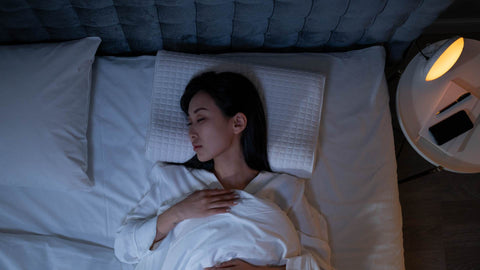Choosing the right pillow plays a crucial role in how well you sleep each night. While it might seem like a small piece of the puzzle, your pillow can significantly impact factors like comfort and sleep quality. An appropriate pillow will support your head and neck in alignment with your spine, preventing strain that could lead to pain and disrupted sleep.
The material and firmness of your pillow are key considerations when it comes to comfort and sleep quality. Whether you prefer memory foam, latex, or feathers, each type offers a different feel and support level that can affect neck and shoulder comfort. Your personal preferences and any allergies should guide your choice, aiming for a balance that enhances relaxation and health.
Sleep is foundational to your overall health, touching everything from mental clarity to physical vitality. When your pillow supports a proper sleeping posture, it contributes to deeper, more restful sleep. Making an informed choice can improve your sleep and, in turn, your daily energy and mood.
The Science of Sleep and Pillow Selection
Pillow choice plays a critical role in how well you sleep. Different pillows offer varying support, affecting neck position, comfort, and overall sleep quality. Understanding how pillows influence sleep patterns and selecting the right type based on your needs requires exploration into specific factors.
Understanding Sleep Cycles and Pillow Impact
Your sleep is composed of cycles that influence feeling rested or tired. An unsuitable pillow may lead to frequent waking, tossing and turning, and poor sleep quality. Proper neck alignment is essential to minimize disruptions and support natural sleep cycles. For those with sleep apnea, a correctly chosen pillow can alleviate symptoms by promoting open airways.
A wrong pillow might cause neck pain, headaches, and general discomfort, impacting daily life. Consider your pillow's role in achieving undisturbed sleep.
Material and Firmness for Optimal Comfort
Pillow material and firmness level significantly contribute to sleep quality. Memory foam and latex foam conform to your head and neck's shape, offering personalized support, which can help reduce neck stiffness and pain. Conversely, polyester pillows provide affordability but may lack longevity and support.
A balance between firm and soft is ideal for head and neck support. Choose materials that do not trigger allergies and accommodate preferences to ensure maximum comfort. Proper material choice can reduce potential headaches and morning stiffness.
Pillows for Various Sleep Positions
Your sleep position often dictates the most suitable pillow type for spinal alignment and comfort. Side sleepers benefit most from high-loft pillows that prevent neck tilt, while back sleepers need medium-thickness pillows to maintain natural curve. Stomach sleepers require thin, softer pillows to avoid excessive neck strain.
Consider neck support and alignment when selecting a pillow to reduce discomfort and improve sleep quality. Assess your primary sleep position and choose accordingly to promote proper spine alignment and alleviate issues like chronic neck pain. This tailored approach leads to better sleep, reducing the risk of waking up with pain or headaches.
Health Considerations and Sleep Enhancement
Selecting the right pillow can significantly impact your sleep and health by addressing allergies, sinus problems, and specific support needs. Understanding the types of pillows and how they can be used for specialized purposes is essential for optimizing both comfort and well-being.
Addressing Allergies and Sleep Disorders
Allergies can hinder your restful sleep due to common triggers like dust mites, often found in pillows and bedding. To minimize allergens, consider using pillows made from hypoallergenic materials such as latex or memory foam. These materials discourage dust mites and help reduce allergic reactions.
For those with sinus problems or sleep disorders, selecting the correct pillow height is crucial. A memory foam pillow can support the cervical spine while keeping your airways open, promoting better breathing. For people using CPAP machines, a specially shaped pillow might enhance comfort without obstructing the device's function, allowing for smoother, uninterrupted sleep.
Incorporating Pillows for Specialized Needs
If you suffer from health issues like heartburn or shoulder pain, specific pillow types can be invaluable. A foam contour pillow can assist in maintaining proper alignment, which might prevent further discomfort or pain. For those experiencing heartburn, a wedge pillow can be used to elevate the head, reducing reflux by keeping acid down in the stomach.
Different sleep styles require varying types of pillow support. A side sleeper might benefit from a firmer option to help maintain spinal alignment, while a back sleeper might need a pillow that supports the cervical spine curvature. Understanding your sleep style and any associated health needs can guide you to a pillow that enhances comfort and supports a healthier sleep experience.



